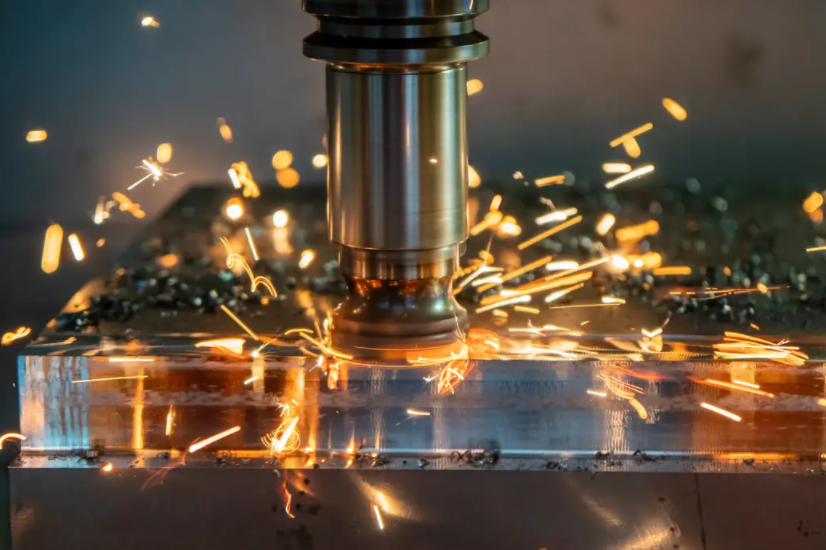Introduction:
Aluminum is a versatile metal widely used in various industries due to its lightweight, corrosion resistance, and excellent thermal and electrical conductivity. However, there are two main types of aluminum – cast aluminum and pure aluminum – each with distinct properties and applications. In this article, we will compare the properties and uses of cast aluminum and aluminum, shedding light on their differences and similarities.
1. Composition and Manufacturing Process:
Cast Aluminum:
Cast aluminum is an alloy that contains a higher percentage of other metals, such as copper, silicon, and zinc. These additional metals are added to enhance the strength and hardness of the aluminum, making it suitable for casting processes. The manufacturing process involves melting the aluminum alloy and pouring it into molds to obtain the desired shape.
Aluminum:
Pure aluminum, also known as wrought aluminum, is a metal with a high purity level, typically above 99.5%. It is obtained by refining bauxite ore through a series of chemical and electrolytic processes. Unlike cast aluminum, pure aluminum is not mixed with other metals or alloys.
2. Strength and Hardness:
Cast Aluminum:
Due to the addition of other metals, cast aluminum is generally stronger and harder than pure aluminum. This makes it suitable for applications that require high strength, such as automotive parts, aircraft components, and heavy-duty machinery. Cast aluminum also offers better resistance to wear and tear.
Aluminum:
Pure aluminum, on the other hand, is relatively softer and less strong compared to cast aluminum. It is commonly used in applications where lightweight and corrosion resistance are the primary requirements, such as in the construction of airplanes, beverage cans, and electrical wiring. Pure aluminum is more malleable and can be easily formed into different shapes.
3. Corrosion Resistance:
Cast Aluminum:
Cast aluminum exhibits good corrosion resistance, especially when compared to other metals. It forms a protective oxide layer when exposed to air, preventing further oxidation and corrosion. However, the presence of other metals in cast aluminum can reduce its overall corrosion resistance compared to pure aluminum.
Aluminum:
Pure aluminum has excellent corrosion resistance, making it suitable for various applications where exposure to moisture and other corrosive environments is a concern. It does not require additional coatings or treatments to protect it from corrosion. This property makes pure aluminum an ideal choice for outdoor structures, marine applications, and chemical processing industries.
4. Thermal and Electrical Conductivity:
Cast Aluminum:
Cast aluminum exhibits excellent thermal conductivity, allowing it to quickly dissipate heat. This property makes it suitable for applications that require efficient heat transfer, such as heat sinks in electronic devices or engine components in automobiles. Cast aluminum also has good electrical conductivity.
Aluminum:
Pure aluminum has exceptional thermal and electrical conductivity properties. It is widely used in the electrical industry for the production of electrical conductors, wiring, and transmission lines. Pure aluminum is also utilized in heat exchangers, cookware, and various other applications where heat transfer is crucial.
5. Cost:
Cast Aluminum:
Cast aluminum is generally more expensive than pure aluminum due to the additional manufacturing steps involved in the casting process and the presence of other metals. The cost of cast aluminum is influenced by market demand, the complexity of the casting, and the desired finish.
Aluminum:
Pure aluminum is relatively more cost-effective compared to cast aluminum. Its abundance and ease of extraction contribute to its lower cost. Furthermore, the absence of other metals in pure aluminum reduces the overall production cost.

Conclusion:
Both cast aluminum and aluminum have a wide range of applications across industries, thanks to their unique properties. Cast aluminum offers superior strength and hardness, making it suitable for heavy-duty applications, while pure aluminum excels in lightweight and corrosion-resistant applications. Understanding the differences and similarities between these two types of aluminum can help industries select the appropriate material based on their specific requirements.
-

- Magnesíumblendi steypuhlutar reiðhjólagrind CNC vinnsla og yfirborðsfrágangur
-

- Rafmagns reiðhjól Magnesíumblendi 12 tommu Innbyggt hjól 36v10ah rafmagns bifhjól
-

- Steyptu magnesíumhlutar hlíf fyrir fartölvuhús D
-

- Magnesíum álfelgur deyja-steypu Bílavarahlutir stjórnandi hús
-

- Magnesium Aluminum Alloy Children Bike 3-8 Years Old Cheap Hot Sale 14 Inch Children Bicycle FOREVER Wholesale 2022
-

- Magnesíum steypuhlutar Stýrisstöng

 0086-750-5616188
0086-750-5616188 +86 13392089688
+86 13392089688 sales@zhongmei-tech.com
sales@zhongmei-tech.com







